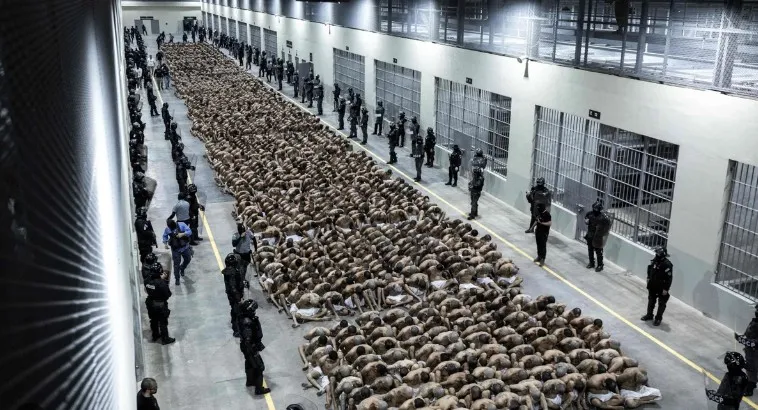El Salvador's Terrorism Confinement Center (CECOT), known as the largest prison in the Americas, has recently received hundreds of deported gang members from the United States, marking a significant development in international efforts to combat organized crime.
Details of the Deportation
Deported Individuals: The initial group includes 238 alleged members of Venezuela's Tren de Aragua gang and 23 Salvadorans, all accused of gang affiliations.
Legal Context: The deportations proceeded despite a U.S. District Judge's temporary block, utilizing the 1798 Alien Enemies Act to expel individuals without hearings.
📌About CECOT
✔️Location: Tecoluca, El Salvador.
✔️Capacity: Designed to hold up to 40,000 inmates.
✔️Facilities: Features eight pavilions, each cell accommodating 65 to 70 prisoners.
✔️Conditions: Critics highlight harsh conditions, including limited inmate privileges and reports of human rights abuses.
📌El Salvador's Stance
President Nayib Bukele has adopted a stringent approach to gang violence, resulting in a significant reduction in crime rates. The agreement to house deported gang members aligns with his zero-tolerance policy and has bolstered his domestic popularity.
📌Financial Aspects
The United States has agreed to compensate El Salvador approximately $6 million annually for each group of 300 suspects housed in CECOT, reflecting a collaborative effort to address transnational gang activities.
📌Human Rights Concerns
Human rights organizations express apprehension regarding the lack of due process for deportees and the potential for abuses within CECOT, citing past reports of inmate mistreatment and inadequate medical care.
Conclusion The utilization of El Salvador's mega-prison to detain deported gang members underscores a robust international strategy against organized crime, while simultaneously raising critical discussions about human rights and judicial fairness.



